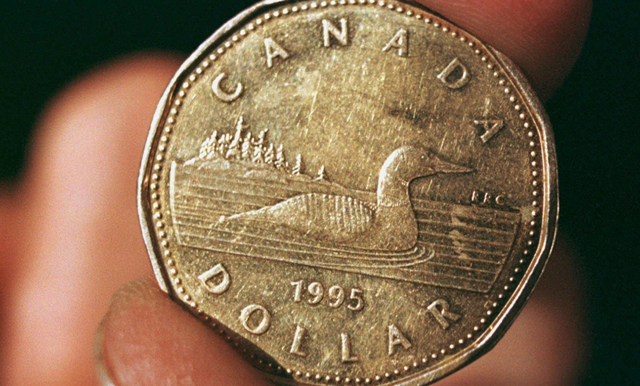Low flying Loonie makes shopping at home at lot more attractive
A low flying loonie of late has feathered the local economy as those who once flocked over the border to shop in the U.S. are choosing to nest at home.
Currently the loonie sits at 0.79 versus the US Dollar.
Since 2013 the Canadian dollar has been dropping from a near-parity perch to trading at about 79 cents U.S.
What that has translated into is a sharp reduction in cross-border shopping trips — down 28 per cent since a peak in 2013 — by many Southern B.C. residents, including those in Nelson.
According to a recent report from the Business Council of B.C. (BCBC) released earlier this week, a fall in the value of the Canadian dollar has “led to a decline in the number of British Columbians making short-duration visits to the United States.”
That means about 148,000 fewer same-day cross-border trips each month from B.C. to the U.S. Although there is not similar hard data to support such claims in Nelson, there are other signs that the lagging loonie has laid a golden egg in the lap of the Nelson business sector.
Nelson and District Chamber of Commerce executive director Tom Thomson said having a low Canadian dollar was a positive thing for the city’s economy.
He said there will be an eventual increase in exports to the U.S. by the Canadian manufacturing sector, but more importantly for Nelson, there has been a rise in U.S. visitors to Canada, a positive effect of an ailing loonie.
“They are coming up here and they are getting a slightly better value for their dollar; as well, they are enjoying great opportunities in Nelson and area,” he said.
Michael Borch, who owns and operates Baker Street Menswear in Nelson, said the weak Canadian dollar has turned into a bonus for Nelson businesses, as more American visitors are coming to the Heritage City.
“It started May longweekend . . . May in general has been good because the weather was nice but the May long weekend we had a noticeable increase and it’s been steady but certainly an increase from the Americans but which also nice to see from Spokane Coeur d’Alene area,”Borch explains.
It also helps stop the leakage of the local consumer dollars to the U.S.
“When the U.S. dollar is as strong as it is, it’s not nearly as attractive (for Nelson buyers),” to head South to shop, Thomson said.
He said the low loonie will not stop cross-border shopping by Canadians, but people might instead only spend money and time in the U.S. as the result of a planned holiday, and not frequent shopping trips.
Borch echoed those same thoughts when asked about the change in the trend of Canadian shoppers heading south looking for deals.
“What we’re hearing form locals and Canadians in gereral, by the time you add everything up whatever your buying . . . gas, food, accommodations, it’s a lot more work if you’re going to save anything at all,” he said.
Canadian Federation of Independent Business surveys have shown a split between those Canadian businesses who felt a weaker loonie gave them a boost, and those who felt it was a disadvantage to local business.
No matter which side of the coin you look at, said Thomson, Nelson has always been a destination for U.S. visitors, and that annual northern migration has been highlighted even more this year.
An early spring and a lower loonie have meant an increased influx of visitors to Nelson, he said, with April up nine per cent and May up 12 per cent in overall visits to the Heritage City.
“You can still see that trending upwards,” Thomson said, with overall visit projections set to rise for the remainder of the summer.
However, the falling loonie does inflate the cost to locals as retailers hike prices to offset the cost of importing goods from the U.S. In addition, purchases made in the U.S. — even those online ones — lose their allure.
The BCBC report also noted that retail spending across the province has increased as more people are buying goods at home.
And that should continue as the depth the loonie has sagged could remain for a few more years, according to a Goldman Sachs Group Inc. forecast, possibly hitting as low as 71 cents by 2017.
The low loonie should help Nelson and other West Kootenay businesses that live on the cusp of the international border. Studies show that people who cross the border to shop in the U.S. tend to live very close to the border relative to the rest of the population.
Other studies show negative retail effects primarily happen close to the border. But for most Canadians cross-border shopping is a pretty rare event without major economic ramifications in the local economy.
Statistics Canada says cross-border shopping by Canadians in the United States almost doubled between 2006 and 2012, but still accounted for less than two per cent of total Canadian retail sales.
The agency says Canadians spent $4.7 billion shopping in the United States in 2006.


























Comments